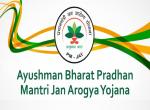“By his Constitutions of Clarendon he (Henry II Plantagenet) sought to fix the relationship of Church and State and to force the Church in its temporal character to submit itself to life and law of the nation.” (A History of the English speaking people Volume I – Sir Winston Churchill)
“We the people of India, having solemnly resolved to constitute India into a Sovereign, Socialist, Secular, Democratic Republic” (The Preamble to the Constitution of India)
There are two major religious mainstreams in the world. The first is that which can for the sake of convenience be referred to as the Sanatan Dharma stream and the second is the Semitic stream. Confucianism and Taoism in China and Shintoism in Japan can vaguely be connected to the Sanatan stream, though the last three named are more philosophies than religions. The Semitic religions, Judaism, Christianity and Islam, are interconnected in that the Old Testament of the Bible followed by the Jews and the Christians follow the New Testament which evolved from the birth of Christ. Islam is followed by the Muslims and though the Koran, it is believed by every Muslim, was revealed to the Muslims through the Prophet Mohammed (PBUH) the inspiration obviously came from the Old Testament of the Bible, whose Prophets are considered the precursors of the Prophet of Islam and are accepted by the Muslims. Many of the principles of purity, Kosher in Judaism and Halal in Islam, are common. All three religions believe in the One God, Jehovah for the Jews, the Holy Trinity for the Christians and Allah for the Muslims. All three religions believe that after death there is no rebirth but there is Judgment by which it is determined whether the departed soul will find eternal peace in Heaven or eternal damnation in Hell. All three are religions of exclusivity, i.e. if one is a nonbeliever he is not entitled to salvation and, therefore, his soul will be damned forever.
Judaism perhaps has no concept of conversion. One has to be born in the religion and in any case it has never favoured proselytisation. In Christianity, especially in the Roman Catholic Church, it is believed that a Christian who does not make an effort to save the soul of a nonbeliever commits a mortal sin and himself faces the danger of eternal damnation. Saving of souls was the justification for the horrors of the Inquisition and the infamous Torquemada. That is why Christianity favoured evangelism and proselytisation. In Islam proselytisation has often followed a conquest and from time to time the Mullahs have been zealous in conversion. The alternative to conversion was the sword and medieval India did see a drive for conversion to Islam. However, as the Muslim kingdoms established themselves, especially in India, the Mullah’s zeal to convert was replaced by the compulsions of government and the need to carry the non-Muslim citizens with the State. The present problem with Islam worldwide is not conversion but rather the influence of orthodoxy fanned by the extreme views of the Wahabis. This has caused problems not only for non-Muslims but also for liberal Muslims themselves.
The religions based on the Sanatan Dharma, especially Hinduism, Sikhism, Buddhism and Jainism, are inclusive religions. Despite Hindus being considered heathens and idol worshippers by both Christians and Muslims, Hindus believe in the one God, Parmeshwar or the Bhramatma. The Sikhs believe in the ‘ek-onkar’, the Jains do not have a concept of God as such and Buddhists, too, have no presiding deity. What the Sanatan Dharma and the religions which grew out of it have in common is the rejection of a concept of permanent Heaven and permanent Hell. Instead, the human soul returns to Earth after the death of the body in some other form and the cycle of birth and rebirth for an individual continues till enough merit is gained through Karma to entitle the soul to eternal salvation. For Hindus this is Moksha in which the human soul is absorbed into the Bhramatma. The Sikhs have a similar belief. Buddhists call Moksha “Nirvana” and Jains call it “Parinirvana”. Absorption into the Godhead is the ultimate objective of every soul. Despite its basic monotheism the Sanatan Dharma differs from the Semitic religions in that it allows every individual that freedom of belief in which one can choose one’s own path to salvation. Worship may be of a single deity or multiple deities. It is permissible to be an agnostic or an atheist because it is not sticking to a prescribed mode of worship which gains the merit of salvation, but rather one’s Karma or dutiful deeds which earn such merit. Surprisingly Sanskrit, the language of the Sanatan Dharma, has no word for religion. Dharma transcends religion because the opposite of Dharma is not disbelief but Adharma. Dharma is the true path as dictated by one’s conscience and by the general philosophy of life itself. This means that if an atheist walks on the path of Dharma he is entitled to Moksha. This automatically makes the Sanatan Dharma inclusive. Now rebirth is only one more opportunity to redeem oneself and this applies equally to Hindus, Muslims, Christians, Pagans and even downright atheists.
The above point is laboured because inherently a Hindu cannot be anything but secular. One could be laughed out of court for saying this because of the huge numbers of deviations from the dharmic path and aberrations in which entire communities are subjected to hatred. This still does not detract from the fact that a religion of inclusiveness has to be by definition secular because no one is excluded. What is more such a religion has an inbuilt system of self-correction. When the extreme orthodoxy of the Brahmanical era ritualised and fossilised the Sanatan Dharma, Prince Siddhartha revolted and became the Buddha. When the Sanatan Dharma corrected itself Buddhism virtually disappeared from the land of its birth. When the caste system began to overwhelm Hindu society Ambedkar’s neo Buddhism emerged. When multiple pluralities began to overwhelm the Sanatan Dharma Adi Sankara preached the philosophy of Advaitya, or the indivisive. In the most recent example of this self-correcting mechanism, when Gujarat erupted in communal madness post Godhra, the Hindus in large numbers castigated the Government of Gujarat and demanded justice for the victims. This is in sharp contrast with what happens in communities ruled by orthodox Islam, where the voice of liberty is muted if not completely silent.
Christianity, because of the revolt of Martin Luther, pulled back from extreme orthodoxy and ever since then the windows of Christianity have been open to liberal thoughts. Long before Martin Luther Henry, II Plantagenet of England moved the State towards secularism by separating Church from State and for all worldly matters making the Church subordinate to secular laws. Of course the French revolution carried this much further, so much so that the Church has no role to play in the politics of that country. The minute that happens religion becomes the voice of morality, ethics and desirable social behavior. This is the true role of religion, to set a benchmark of values against which both people and the state can be judged and can find a balance.
Was Islam always orthodox and encouraged fanaticism? The most renowned Islamic state was the Moorish Kingdom of Spain which brought Andalusia, Catalonia and Seville under Muslim rule for about seven centuries. The Moorish Kingdom, which towards the end split into two, was liberal, secular in governance and a great patron of the Arts and Sciences. In every field of human endeavour Moorish Spain excelled. It had great centres of learning, advanced centres for Medicine, Architecture, Engineering and Liberal Arts. The great irrigation system of the Wadi-al-Kabir (now Guadalquivir) brought water to the parched lands of southern Spain and converted them to a granary. The state was secular in that two of its Prime Ministers were Jews. Christians and Jews dwelt there in full equality with the Muslims. This liberal face of Islam was destroyed when Isabella and Fernandes re-conquered Spain for Christianity, brutally butchered and enslaved the Moors, victimised the Jews and destroyed all science and learning in the kingdom. Perhaps it is this which drove the Muslim states of Africa and Arabia into deep orthodoxy from which they have still not recovered. When political liberties fail it is but normal that orthodox Mullahs take over and we are witnessing this in our immediate neighborhood in Afghanistan and Pakistan. Can we infer from this that the Muslims of India are also basically orthodox and bigoted?
This returns us to the title of this paper. India opted for secularism at the time of partition. In population it is overwhelmingly Hindu but because the State is secular we also have the second largest Muslim population in the world after Indonesia. Christians, Sikhs, Jains, Buddhists and Parsis are all citizens with equal rights because our Constitution recognises all citizens as equal. This is not just an empty promise because the fact is that though the Muslims are under-represented in public services, politics and the armed forces, this is not because there is positive discrimination against them, at least in the last forty years. The war in Kashmir and the wars of 1965, 1971 and in Kargil have amply demonstrated that to the Indian Muslims Pakistan is neither a present nor a future home for them. What seems to be holding back the Muslims is that for social and misinterpreted religious reasons the Muslims are not participating in education to the extent that Hindus and Christians are. However, wherever the Muslims have come into the mainstream of education they have broken all barriers in business, in public life, in medicine and engineering, in architecture and the arts. This means that the Indian Muslim is not averse to liberal thoughts and deeds while at the same time remaining faithful to his religion. One change which is visible is the greater participation of Muslim girls in education and an example of this is institutions run by the AL-Barkaat Education Foundation in Aligarh, where there are as many as if not more girls than boys in the colleges of Management Studies and Education. Surprisingly Gujarat in the last few years has shown the highest increase in education amongst the Muslims, which means that even in that state Muslims have recognised the importance of education. The influence of Sufism, the intrinsic acceptance of Muslims as a part of India by the majority of Hindus has certainly given Islam in India a more liberal form and substance than in Pakistan. Surely, this has benefited Muslims. It proves that liberalism and Islam are not incompatible. Turkey proved this about ninety years ago under Kamal Ataturk. If seven hundred years of liberalism in the Moorish state in Spain did not endanger Islam, secular Islam will certainly not destroy Islam in India and elsewhere. As things are developing in India the secularism of Muslims is not skin deep, though there is a struggle to prevent Islamic identity from being submerged in a sea of Hinduism.
What about the Hindus? There are extreme orthodox Hindu groups fathered by the RSS and these include the Vishwa Hindu Parishad, Shiv Sena, Bajrang Dal, Akhil Bhartiya Vidyarthi Parishad and the fringe violent group led by people such as Sadhvi Pragya, Sadhvi Ritambhara, Praveen Togadia and others. There is also a social inhibition on the part of some sections of Hindu society to have conscious and deep social intercourse with Muslims and even today a Hindu-Muslim inter religious marriage arouses passion and violence, largely among Hindus. Such actions as a demand for construction of a Ram Temple at Ayodhya and temples in Mathura and Varanasi are danger signals to our secular polity and society. There are groups of Hindus who argue that they are under threat from Muslims who breed like rabbits and soon will overtake the Hindu population. For twelve percent of the people to breed sufficiently fast in order to overtake eighty two percent of the population they would have to do much better then rabbits. The fact is that in all communities at the lower end of the economic spectrum the family size tends to be larger as a hedge against infant mortality and because children, especially males, are looked upon as potential wage earners. In the middle classes in all religions the family size tends to be small. Why cannot RSS see this demographic fact? Rather they react to the more orthodox form of Islam by moving towards militant Hinduism. Would it not make better sense not to lose one’s balance and to calmly work for the promotion of education and gainful employment for Muslims so that livelihood and social relationship becomes more important then religious orthodoxy? That is one way to moderate the exclusivity of Islam.
There are communal riots in India and there are allegations that the Police acts with a bias against Muslims. It is the same Police in the form of NIA which has gone after Hindu extremists in the Samjhauta Express case and the Malegaon bomb blast. Can one see the Pakistan Police doing the same with LeT? If our secularism were only skin deep then the majority of Hindus would have risen in revolt against a government which targeted Hindu militants and brought them to book This has not happened because the people have accepted that terrorists are terrorists and have no religion.
There is, however, one area of concern which is hurting our secular status. This is the divisiveness of our society by our politicians who have used caste and religion as major factors in elections. Why should caste not be considered as dangerous as religion in the matter of hurting secularism? In this behalf one has to give credit to Nitish Kumar who has proved that the politics can rise above caste, that no religion should be pandered to and that the aspirations of the Muslims for a better life are exactly the same as of Hindus. For the first time in Bihar he proved that elections can be won on the promise of development, that Muslims can vote for his BJP allies and that good government is much more important than caste.
This is the final proof that basically secularism in India is not skin deep but is a part of our social fabric.
------------------------------------
Published Date : 23rd December 2011









Post new comment